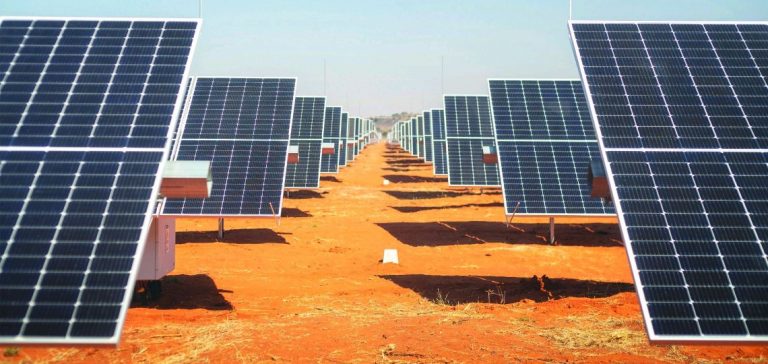Mainstream Renewable Power announced the finalization of the financing of its 50 MW photovoltaic solar project in Ilikwa, located in South Africa. This initiative is part of an innovative development strategy aimed at providing flexible energy solutions tailored to the needs of private and industrial companies.
Investec, a major financial partner in the project, has provided pre-construction financing as well as support in debt and equity for the construction of the solar plant. Mainstream Renewable Power holds a 70 % stake in the project, while Investec holds 30 %. This capital distribution illustrates a willingness to diversify financing sources, thereby ensuring a solid foundation for the company’s future development in the renewable energy sector in South Africa.
Project Analysis
The Ilikwa project represents a significant step in the expansion of Mainstream Renewable Power’s solar portfolio in South Africa. By offering Renewable Energy Supply Agreements (RESA), the company is responding to a growing demand for more adaptable and economical renewable energy contracts. These agreements allow clients to commit for periods of five to ten years, in contrast to traditional Power Purchase Agreements (PPA) which generally last twenty years.
Financing Structure
Investec, a major financial partner in the project, has provided pre-construction financing as well as support in debt and equity for the construction of the solar plant. Mainstream Renewable Power holds a 70 % stake in the project, while Investec holds 30 %. This capital distribution illustrates a willingness to diversify financing sources, thereby ensuring a solid foundation for the company’s future development in the renewable energy sector in South Africa.
Environmental and Industrial Impact
The Ilikwa solar plant, located in the Free State province, is expected to produce 141 GWh of electricity annually, equivalent to the consumption of more than 42,000 South African households. Additionally, this project will help avoid the emission of 100,000 tonnes of CO2 per year, thereby strengthening efforts to reduce carbon emissions in the region. This is the second similar project implemented by Mainstream in South Africa over the past year, indicating a trend towards private PPAs aimed at increased security of sustainable energy sources.
New Energy Products
The launch of RESA marks an important evolution for the energy sector in South Africa. These shorter and more flexible contracts meet the increased demand from companies for energy solutions that allow dynamic management of their consumption and costs. By offering commitments of five to ten years, RESA allows clients to quickly adapt to technological and regulatory changes, while accessing an increasingly decarbonized energy mix.
Growth Prospects
Mainstream Renewable Power currently has a portfolio of 12 GW of projects under development in Africa, with 180 MW ready to be constructed by 2025. This development capacity positions the company as a key player in the renewable energy sector in South Africa. The South African market, facing energy security challenges and pressures to reduce carbon emissions, is seeing its energy transition accelerate thanks to initiatives like those of Mainstream.
The Ilikwa project and the introduction of RESA reinforce Mainstream’s strategy to diversify its offerings to meet the growing demand for clean energy. By adapting its financing models and introducing innovative products, Mainstream attracts a new clientele of companies seeking flexible energy solutions. This model could serve as a reference for other emerging markets where the demand for flexibility in energy contracts is increasing.
This project is part of a broader transformation of the South African energy sector, where public-private partnerships, contractual innovation, and diversified financing are essential to support the transition to cleaner and more sustainable energies.






















